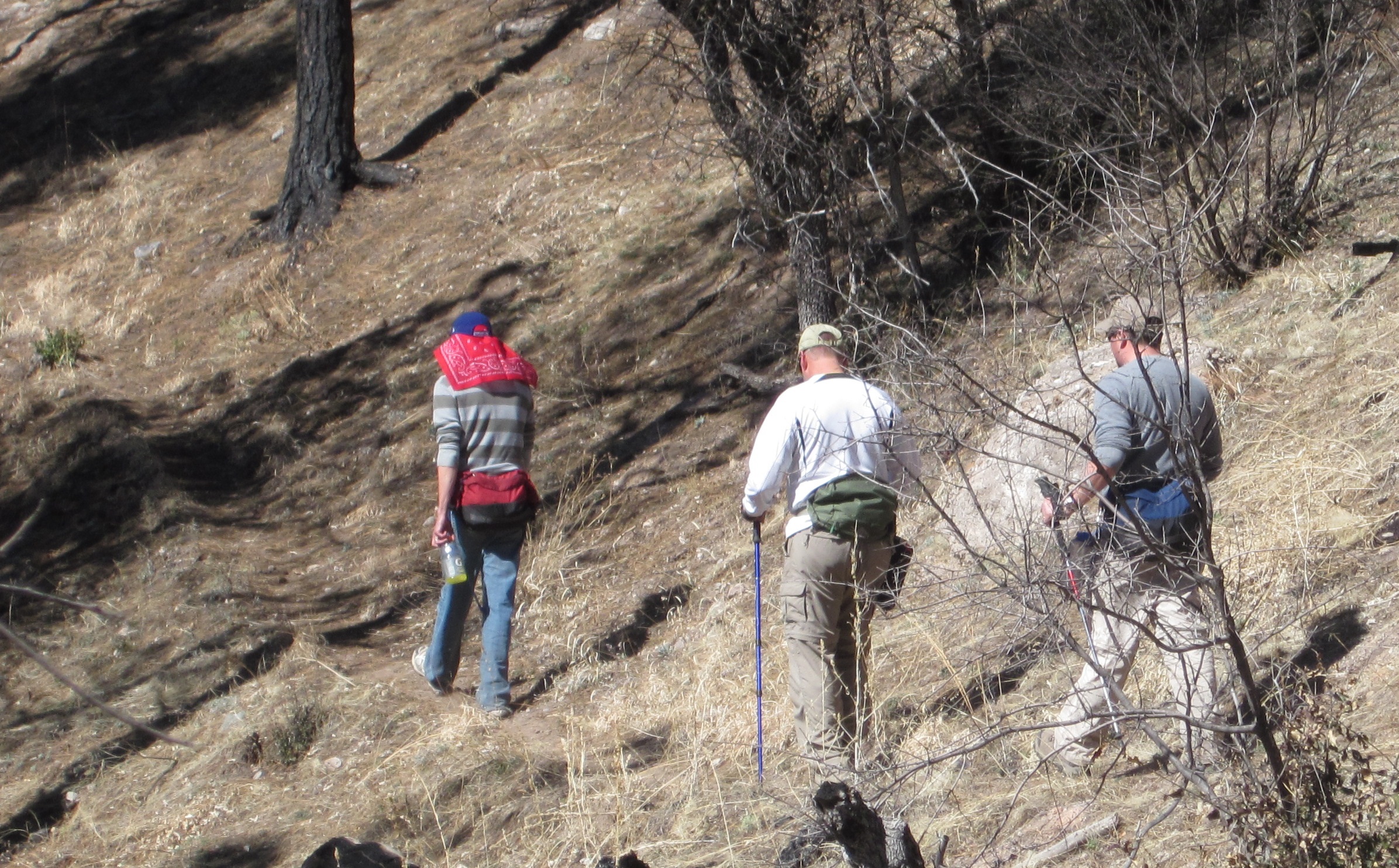Navigating a Deeper Life
/Are you a good navigator? Or are you the sort who gets lost often? My wife, Cyndi, has a much better intuitive sense of direction than I do. I need more than intuition, I need maps. I am a map guy.
Which brings me to an article I read in Backpacker Magazine titled “Navigate Like a Pro.” The article contains tips to keep from getting lost in the wilderness, but their advice is more fundamental than mere backpacking. They tapped into deeper ideas that help us navigate closer to God.
The article, from the May 2015 issue, features advice from Liz Thomas, a long-distance backpacker who holds the women’s unsupported speed record on the Appalachian Trail (80 days). Here’s what she says we need to do to keep from getting lost.
(1) “Keep your mind and body sharp. It’s really hard to navigate if you’re hungry, thirsty, or cold. An unfueled brain is more likely to make poor decisions.”
We all make bad decisions when we’re exhausted. We speak when we shouldn’t, pick fights we should’ve left alone, and repeat the same mistakes over and over. Unfortunately, we live in a time when exhaustion is a point of pride. Too often we plan our days all the way to the edges, leaving no margin for change or adaptation, feeling like lazy slackers when we aren’t constantly busy and rushed.
 But according to Dr. Christine Carter, author of “The Sweet Spot,” there is plenty of research to show that people who are able to sustain high performance don’t let themselves get busy. Moreover, their not-busyness makes them much more productive than average. Living full speed, 24/7, reduces our ability to make good decisions and increases the likelihood we’ll get lost.
But according to Dr. Christine Carter, author of “The Sweet Spot,” there is plenty of research to show that people who are able to sustain high performance don’t let themselves get busy. Moreover, their not-busyness makes them much more productive than average. Living full speed, 24/7, reduces our ability to make good decisions and increases the likelihood we’ll get lost.
(2) “Confirm your location on your map often. This sounds obvious, but this is the single best way to prevent wandering off course. I always hike with a map in my hand or in my pocket.”
The biggest and worst mistakes I’ve made in my life have happened when I moved on my own initiative without asking advice. I put too much confidence on my own intelligence and cleverness, took off on tangents, and ended up solving the wrong problem or missing the heart of the business deal. To be effective, to stay on the correct trail, to avoid getting lost, we have to check in often, tag up, ask opinions, show unfinished work to people we respect, listen to feedback, be willing to stop, reevaluate, and adapt.
(3) “Learn to read contour lines. GPS units are great, but you still need to be able to read a map. That means understanding how contour lines represent real-world terrain.”
The problem with using a GPS is you never see the big picture. They are great for taking you to a specific location, but not so great for learning the overall lay of the land, or what you can expect just past the edges of the screen.
Too often we live out our spiritual lives as if using a GPS. We read only books by Christian authors, listen only to Christian music, tune in only to sermons. We get excellent advice and directions for specific problems, but miss the opportunity to know and understand the bigger world that lies just beyond the edges.
In 1 Chronicles 12, the historian makes a list of all the tribes who were lining up behind King David. Verse 32 tells about the tribe of Issachar, who “understood the times and knew what Israel should do.” We want to be people like that. Learning to read the contour lines of our world gives us better knowledge of what to do and where to go.
(4) “Learn the difference between true north and magnetic north. The difference is called declination; it changes over time, and it varies according to your location.”
The best way to stay tuned to true north in life is to read your Bible on a consistent basis. Read it cover-to-cover, over and over. Reading other books is important, but opinions change over time and vary according to location. Keep returning to true north. Keep reading the source code. Stay in your Bible.
(5) “Think like a railroad engineer. When traveling cross country, observe the landscape and choose the path of least resistance.”
Sometimes we make following God too hard. We fret over signs and open doors when God wants us to follow our heart. Often, the path that feels right, is the right path.
(6) “Avoid shortcuts. Not only does cutting switchbacks or taking short cuts cause erosion, but it’s also an easy way to get lost.”
In the Guadalupe Mountains where I do most of my hiking, cutting switchbacks is a good way to lose your footing and slide 3,000’ down to the desert floor. Don’t do it.
When we start to get indications about our calling, we often want to jump before we’re ready. Take your time; let God train you; allow him to build the skillsets in your life; don’t rush ahead taking short cuts. You’ll most likely get lost, and might get hurt.
How about you? Are you a good navigator? Or are you the sort who gets lost often?
“I run in the path of Your commands, for You have set my heart free.” Psalm 119:32
I need your help. If you enjoyed reading this, please share with your friends. You can find more of my writing on my weekly blog, read insights on Tumblr, and follow me on Twitter and Facebook.













